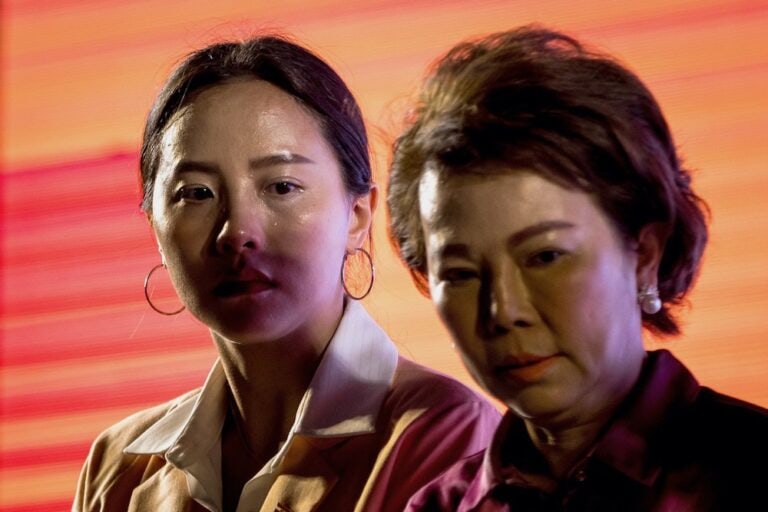(TJA/IFEX) – The following is a 3 May 2008 joint statement by TJA and other organisations: Joint Statement on World Press Freedom Day The Thai Journalists Association, the Thai Broadcast Journalists Association and the Confederation of Thai Journalists join the UNESCO celebration of World Press Freedom Day on May 3, to reaffirm the basic principles […]
(TJA/IFEX) – The following is a 3 May 2008 joint statement by TJA and other organisations:
Joint Statement on World Press Freedom Day
The Thai Journalists Association, the Thai Broadcast Journalists Association and the Confederation of Thai Journalists join the UNESCO celebration of World Press Freedom Day on May 3, to reaffirm the basic principles of freedom of the press and freedom of expression. The occasion aims to create greater public awareness of the importance of media freedom, which also means freedom of people to be informed.
On this occasion, we three organizations call upon the Thai government to recognize the importance of this date and to pay attention to the following:
1. Even though the current Constitution explicitly stipulates the obligation of the government to guarantee media freedom, under the current administration, led by Prime Minister Samak Sundaravej, a hostile and threatening climate toward the media prevails.
New forms of threat against the media have emerged under this government, involving aggressive and crude official statements and the use of state media to rebuke the independent media. For example, in his TV political talk show entitled “Samak Talks”, the prime minister often propagates ideas that lead the public to misunderstand the media’s work, and he frequently uses this platform to threaten the media, columnists and some television and radio programs.
This behavior reflects his intolerance towards different views, which entirely contradicts the culture of democracy.
Samak’s antagonistic discourse against the media is not new to members of the press, as he has exhibited this attitude for more than 30 years of his political career. However, over the past three months, the prime minister has demonstrated a more virulent intention than ever to discredit the media and lead the public to believe that media professionals have “stirred up trouble”.
More importantly, the prime minister has openly said he would use state media to counter privately-owned media. People’s freedom of expression is, therefore, being threatened.
We see this behavior of Samak as reflecting his insensitivity towards media and his ignorance and lack of appreciation for the value of media in Thai society. He fails to respect the dignity and prestige of media.
2. The government, especially Minister Jakrapob Penkair, has also shown no qualms in trying to regulate state media and broadcasting media. The minister clearly abused his power by changing the status of media outlets under the aegis of the Public Relations Department. In the latest case, he organized a pilot project to develop cooperation between state agencies and community radio stations and proposed to negotiate with the National Police Bureau not to arrest community radio stations that broadcast government programs.
He clearly abused his power by indirectly forcing the community radio to take the government’s side by reporting government news, at the same time preventing different views and pluralism. Such negotiation with police comes close to infringing on the law and encourages officials to neglect their duties.
Therefore, we groups call on the government to expedite the implementation of the Frequencies Distribution and Radio and Television Broadcasting and Telecommunication Business Supervision Act of 2000, in order to push for the setting up of an independent body to regulate, supervise and allocate frequencies in accordance with the 2007 Constitution, to help solve the problem of unregulated community radio stations.
We also call upon the government to stop delaying the enforcement of the Radio and Television Broadcasting Business Act of 2008, which they seem to be doing with the ulterior motive of prolonging state control over radio and television stations.
3. Over the past years, high-ranking officials have used criminal defamation laws to stifle the media and prevent them from presenting facts and criticising actions that undermine the public interest. A Thai-based transnational business conglomerate also used these defamation laws to claim damages of up to 1 billion baht in both civil and criminal libel suits. It is clear that the company is not serious about the compensation, but rather aims to stop the media from reporting about its doings. The company is intent on curbing people’s freedom of expression and the media’s work.
We three groups appeal to individuals, organizations, politicians and transnational companies to stop using legal actions to curb media freedom.
On the occasion of WPFD, we reiterate our intention to support the cause of freedom of expression, which is a basic right of all people. We believe any action that obstructs freedom of expression, that infringes upon the laws and good culture of the Thai people, will definitely be resisted by the people.
Thai Journalists Association
Thai Broadcast Journalists Association
Confederation of Thai Journalists


